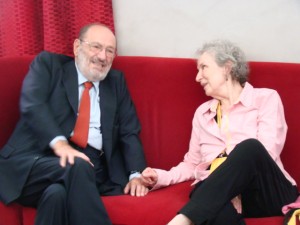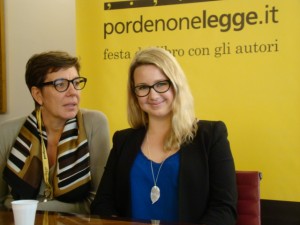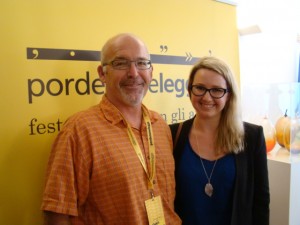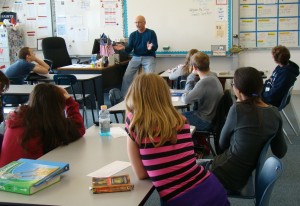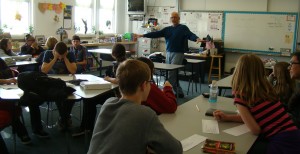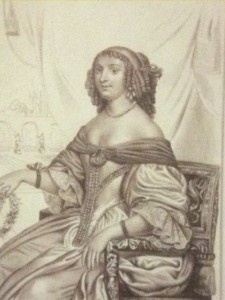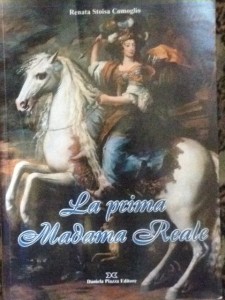This week the annual book fair in the small town of Pordenone, Italy opened.
I really love this event, as authors from all over the world come and speak to readers, journalists, and other authors.
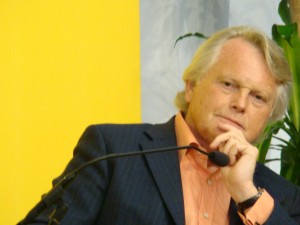
Yesterday I met Michael Dobbs, author of “House of Cards.” After great success as a book, and a few seasons on BBC, it is now a huge hit on US television (finally being broadcast on the Sky Network in mainland Europe). Season two of the US TV series opens on Sky next week.
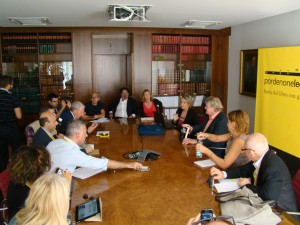
I sat through a press conference with Dobbs (and about 25 Italian journalists), then his presentation to the public, with perhaps 250 in the audience.
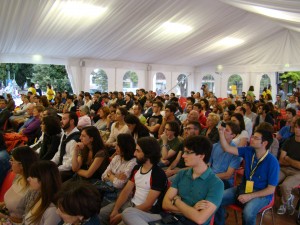
He talked about how it has taken 27 years for “House of Cards” to become such a big success – so I take some comfort in being stuck for the last year or so on my second novel.
He started writing while on vacation after being sacked from his job as Chief of Staff to then-British Prime Minister Margaret Thatcher. Sitting by the pool at a resort on the island of Malta, he had a pad, a pencil and a bottle of wine.
By the time the wine was gone, he had written just two letters, F U.
Given what had just happened to his political career, I think we all know what those letters meant. Anyway, as he finally started to get some traction in his writing effort, those letters became the initials of his main (and really, really nasty) character. Francis Urquart in the British version, Frank Underwood in the US (played brilliantly by Kevin Spacey).
Dobbs said that drama comes from getting to the dark side of a character, and real drama comes from exploring the deepest depths of that darkness. If you have seen the show, or better yet read the books, it’s pretty clear he has found some drama.
When asked about Scotland voting for independence from the United Kingdom (Dobbs is a member of the British House of Lords), he first said if it were approved, it would be the saddest day of his political life. Results came in today and the independence bid was voted down by the Scots.
Dobbs then talked about leaders, in a political sense. As he is a MP, and has a long political career, and writes compelling drama about politics, this is a theme close to his heart.
He expressed his opinion the world, but Europe in particular, needs new charismatic and creative leaders to figure out solutions to the many vexing problems of our time.
I was more interested in his literature than his politics, but had to ask him if it took one bottle of wine to get him to produce the letters F U, how much wine would he need to be that charismatic and creative leader he wants?
He smiled and said (paraphrasing), “Wine does not keep you young, but it does keep you.”
I told him that since he was in Italy, he was in the right place for plenty of creative inspiration.
I found his presentation interesting and informative, and now can’t wait to read his entire “House of Cards” trilogy.
Later this week, I’ll meet Margaret Atwood, Umberto Eco, and Hannah Kent.



